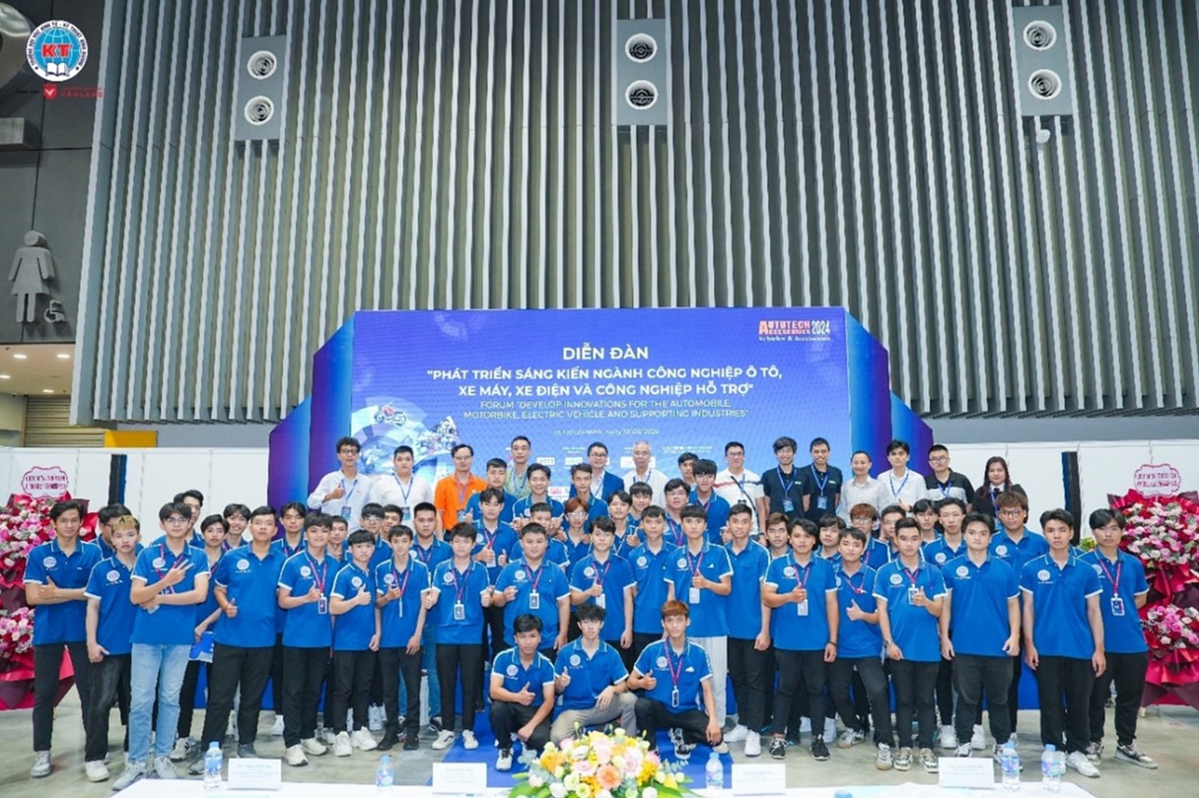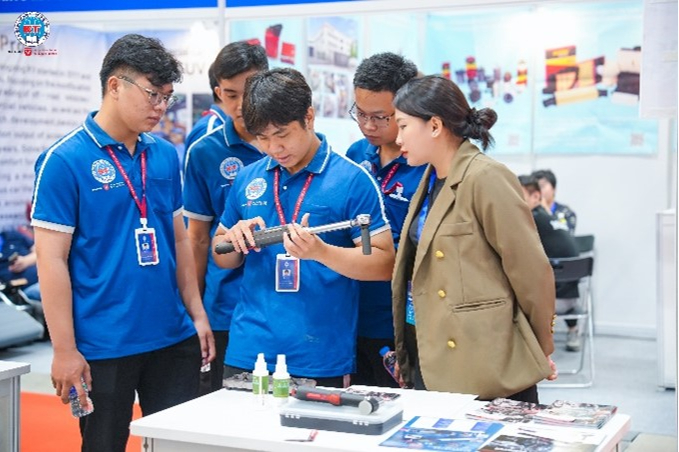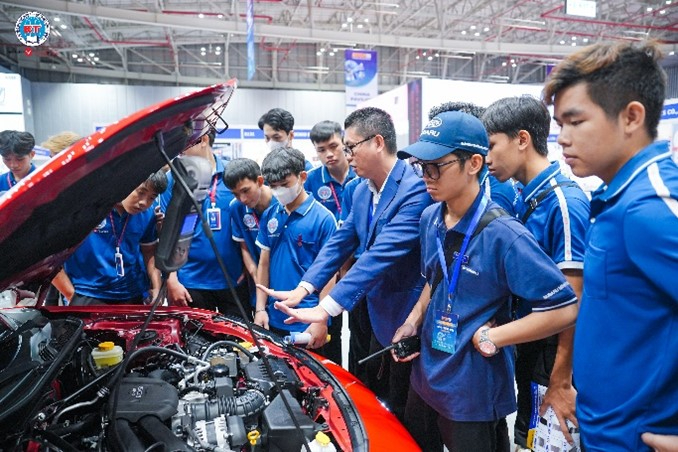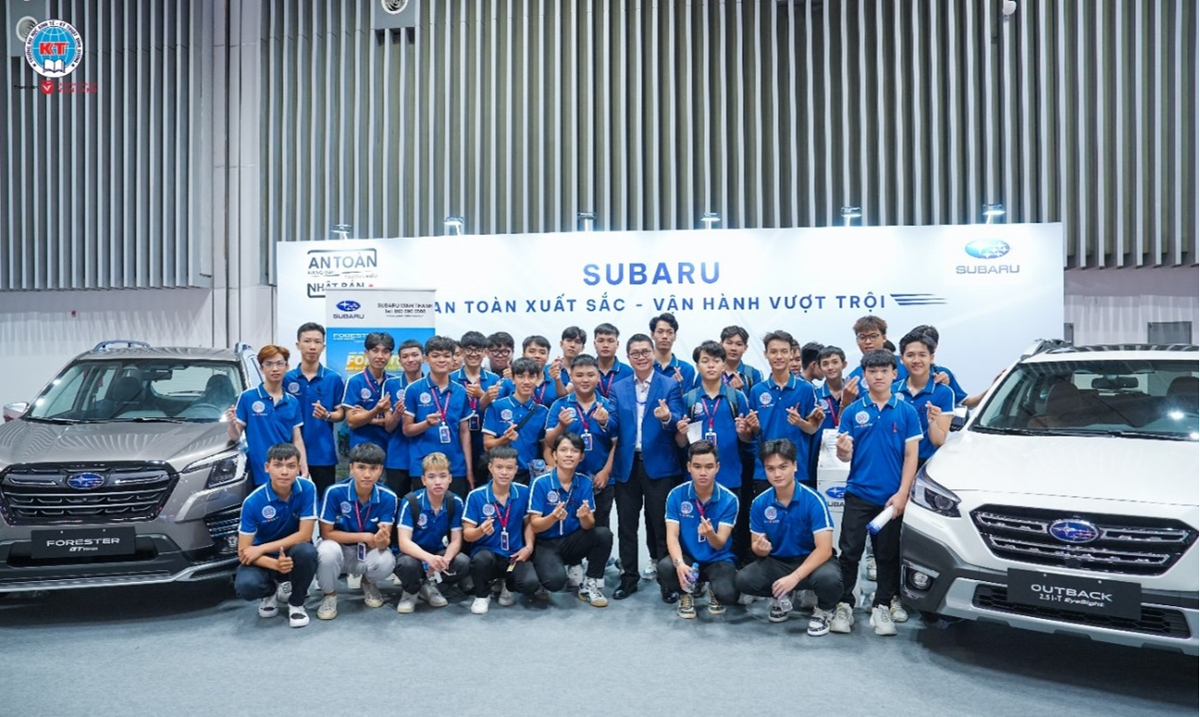In the context of the rapidly advancing automotive industry and the increasing demand for skilled human resources, universities and colleges are actively seeking effective teaching methods to train high-quality engineers and graduates. Experiential Learning has been widely implemented in automotive technology and engineering education, bringing numerous practical benefits to students.

Lecturers and students of FATE at Autotech & Accessories 2024
Concept and Benefits of Experiential Learning: Experiential Learning is an educational approach that allows students to engage directly in real-world activities, enabling them to acquire and develop skills effectively. Unlike traditional teaching methods that focus on theory and rote memorization, Experiential Learning emphasizes "learning by doing" and creates real-life scenarios for students to address.
Development of Technical Skills and Practical Knowledge: One of the greatest advantages of Experiential Learning is its ability to help students master specialized knowledge and practical skills. In the field of automotive technology and engineering, understanding the principles of automotive systems, structural features, and the ability to apply knowledge in practice is of paramount importance. Through practical sessions in automotive workshops, students gain exposure to cutting-edge technologies, advanced-generation engines, new powertrain systems, and complex automotive electronic systems.
Developing Professional Skills and Practical Experience
One of the greatest benefits of experiential learning is equipping learners with comprehensive expertise and practical skills. In the field of automotive technology and engineering, understanding the operational principles of various systems, structural characteristics of automobiles, and the ability to apply knowledge in real-world settings is critically important. Through hands-on practice at automotive training centers, students gain exposure to advanced technologies, next-generation engines, modern powertrain and drivetrain systems, as well as complex automotive electronic systems.
Problem-Solving and Creativity Skills
Experiential Learning also enhances students' problem-solving abilities and creative thinking. When confronted with real-life challenges, such as technical malfunctions or system improvement demands, students must devise strategies and solutions. This process not only requires technical expertise but also demands logical reasoning, creativity, and the capacity to work under pressure.
Application of Experiential Learning in Automotive Technology and Engineering Training
Practical Sessions in Workshops


Students working with modern tools and gaining insights into real-world automotive systems
An essential aspect of this method is practical training in automotive workshops. Here, students interact directly with advanced technological equipment, from internal combustion engines to automotive electrical and electronic systems. These practical sessions are designed to help students deeply understand the structure, operating principles, and maintenance and repair processes of vehicles.
Research and Development Projects: Participating in Research and Development (R&D) projects allows students to work in teams, delve deeply into specific topics, and apply their knowledge to practical contexts. This experience not only strengthens their technical expertise but also fosters creativity and self-directed learning.
Internships at Automotive Companies

Lecturers and students engaging in Subaru vehicles at Autotech & Accessories 2024
Internships are a vital component of Experiential Learning, providing students with opportunities to work directly within the automotive industry. Through these internships, students apply their knowledge in real-world settings, gain a deeper understanding of industry workflows and standards, and collaborate with experienced engineers and specialists. These experiences allow students to acquire practical skills, build professional relationships, and expand their career opportunities after graduation.
Challenges and Solutions:
Challenges: While Experiential Learning offers numerous benefits, it also poses several challenges. Designing and implementing experiential activities require significant resources, both financial and human. Laboratories, practical facilities, and modern equipment are often costly, and a team of highly qualified faculty and technicians is essential.
Additionally, assessing the effectiveness of Experiential Learning is more complex than traditional methods. Evaluation criteria must extend beyond theoretical knowledge to encompass practical skills, problem-solving abilities, and teamwork, necessitating innovative and flexible assessment methods.
Solutions: To address these challenges, Binh Dương Economics and Technology University (BETU) has been investing heavily in infrastructure and equipment, as well as training a team of highly skilled lecturers and technicians. The university is also actively fostering collaborations with industry partners, providing students with opportunities to access advanced technologies and practical workflows.
Furthermore, developing comprehensive evaluation criteria and methods is essential. These criteria should accurately reflect the skills and knowledge students acquire through experiential activities, ensuring they are fully equipped to enter the workforce.
Conclusion
Experiential Learning is proving to be a significant advancement in the education of automotive technology and engineering graduates at BETU and other institutions. By integrating theory with practice, encouraging creativity, and fostering problem-solving skills, this approach not only enhances the quality of education but also prepares students comprehensively to tackle challenges in the automotive industry.